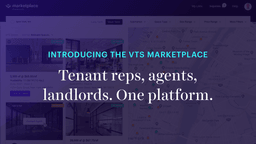
Marketing Best Practices
Top picks: CRE Tech News of 2018
Increasing appetite for CRE technology coupled with significant capital raises continued to fuel the momentum of the CRE Tech industry in 2018. Many positive signals seen in the real estate tech space this past year validate the growing confidence in the sector’s digital transformation.
Below is a round up of some of the most exciting headlines that made news in the CRE tech sector in 2018.
Colliers Launches Real Estate Tech Accelerator With Techstars
January 2018
Colliers has teamed up with Techstars to launch a program to mentor startups developing industry-disrupting technologies in the real estate industry. The Colliers Proptech Accelerator powered by Techstars will be an intensive 13-week program hosted at Colliers’ global headquarters in Toronto. Selected startups for the program will focus on the development and acceleration of technology-driven solutions.
Read full article by Ian Johnston on Bisnow
Construction startup Katerra gets $865M in Softbank’s latest mega-round
January 2018
There’s another big financing round led by Softbank’s mammoth vision fund today, with the firm this time pouring $865 million into a construction startup called Katerra that’s a one-stop shop for getting a building up off the ground.
Katerra is creating a full-stack provider for, well, buildings. The company runs the process of getting a building up and people inside it from the architectural design components all the way through labor management and renovation. So it’s a one-stop shop for companies that are looking to construct new buildings without having to piece together a full process from disparate architectural firms, construction companies, and so on. Companies don’t have to use all of Katerra’s services, but the whole life cycle is there.
Read full article by Matthew Lynley on Techrunch
Why Commercial Brokerages Are Aggressively Launching New Tech Services
February 2018
Technology plays a huge role in powering the $2 trillion machine that is commercial real estate, and major commercial brokerages are scrambling for a piece of that pie. Brokerages such as CBRE, Colliers International, Cushman & Wakefield, JLL and Newmark Group have been heating up their tech infrastructure and investment as of late.
“I think it’s probably the biggest underlying trend that we’re seeing in the marketplace,” CRETech.com CEO Michael Beckerman said. “The brokerage firms, in particular the big five I would say, have all now aligned themselves with either a VC accelerator [or] hired their own in-house tech talent. Brokerage firms are waking up to the opportunities that CRE tech offers them.”
Read full article by Champaign Williams on Bisnow
CRE data startup Reonomy raises new venture round, partners with Newmark
February 2018
Real estate research and data startup Reonomy raised $16 million in its latest funding round, about three years after last raising venture capital. The company, founded in 2013, has now picked up just under $40 million from investors, making it one of the deeper-pocketed startups to tackle the burgeoning market for commercial real estate intelligence.
Read full article by Hiten Samtani on The Real Deal
How Are Fintech And Proptech Changing The Real Estate Industry In 2018?
February 2018
Buying a home in 2018 is much different than, say, 15-20 years ago. The antiquated ways of the real estate market have paved the way for proptech and its experience-based applications. It is now possible for a buyer to purchase a home without ever leaving their couch by using a wide array of online tools to view and assess the property of their dreams in one sitting.
Adding to the accessibility is the use of fintech on the finance side to push home loans through and make it easier than ever for a buyer to get financing and interface with their lender. The two technologies are making the process of buying a home more intuitive and convenient. ç
Venture Capitalists’ Real Estate Tech Investments Plummet 74%
March 2018
Venture capitalists invested $192M in real estate tech startups in February, down 74% from $751M in January, according to a report from RETech — an affiliate of investment sales market data provider Falkon Inc.
Among the largest recipients of capital in the U.S. last month was New York-based national commercial real estate data provider Reonomy. Co-founded by CEO Richard Sarkis, the startup completed a $16M funding round earlier this month, led by private equity firm Bain Capital. Investors poured $25M into online mortgage processor Roostify and $15.5M into San Francisco based Lyric, a short-term rental operator.
Read full article by Champaign Williams on Bisnow
Physical Retail Isn’t Dead. Boring Retail Is.
March 2018
While retail is going through vast disruption causing many stores to close — and quite a few malls to undergo radical transformation or bulldozing — the reality is that, at least in the U.S., shopping in physical stores continues to grow, albeit at a far slower pace than online. An inconvenient truth to those pushing the “retail apocalypse” narrative, physical store openings actually grew by more than 50% year over year. Much of this is driven by the hypergrowth of dollar stores and the off-price channel, but there is also significant growth on the part of decidedly more upscale specialty stores and the move of digitally-native brands like Warby Parker and Bonobos into brick and mortar.
Read full article by Steve Dennis on Forbes
WeWork rival Knotel is now valued at $500M
April 2018
Knotel closed a $70 million in a Series B funding round on Tuesday, with plans to expand rapidly and muster a serious challenge to industry leader WeWork.
The flexible office space startup led by Amol Sarva has now raised $100 million between two seed rounds, and is valued at $500 million, according to research firm Pitchbook.
Read full article by David Jeans on The Real Deal
Softbank’s Futuristic Vision Fund Takes On The Real (Estate) World
April 2018
In the last two months Michael Marks has turned down a dozen offers to make keynote speeches at conferences. His company, construction startup Katerra, is three years old, but the attention surge is very recent. “Construction technology has gotten kinda buzzy,” he says.
That may be. But more likely, interest in Katerra has spiked because in January, the company landed an astounding $867 million in venture funding led by the SoftBank Vision Fund. A deal of that size, led by the venture industry’s most talked-about fund, will put a company on the map overnight. Marks had been planning to raise around $500 million, but in a pattern that’s become familiar, once SoftBank got involved, everything got bigger.
Read full article by Erin Griffith on Wired
Fifth Wall raising another $200M for retail tech startups
May 2018
Real estate tech startups may have a busy summer ahead if they are looking to seize more venture capital money.
Fifth Wall Ventures, the Los Angeles-based venture capital firm that has pooled money for real estate tech firms Industrious and Airbnb rival AJJK, has already raised $60 million from two unnamed investors, according to an SEC filing issued this month.
The fund, aptly named Fifth Wall Ventures Retail Fund, L.P., could suggest where the money is headed this year: retail real estate tech. The firm has previously invested in retail startups, such as Appear Here, an online marketplace for retail space.
Read full article by David Jeans on The Real Deal
JLL Debuts $100M Fund Focused On Real Estate Tech Startups
June 2018
Last summer, real estate giant Jones Lang LaSalle launched a new unit—dubbed JLL Spark—to promote the development of tech-driven real estate services.
Follow Crunchbase News on Twitter & Facebook
Now that unit has announced the creation of JLL Spark Global Venture Fund, which plans to invest up to $100 million in startups focused on leveraging technology to improve real estate development, management, leasing, investing, and the tenant experience.
JLL joins a growing list of real estate companies entering the venture space. In April, I wrote about Redaptive Inc closing on a $20 million funding round led by commercial real estate services and investment firm CBRE.
Read full article by Mary Ann Azevedo on Crunchbase
RXR Realty is raising $50M for real estate tech fund
June 2018
Commercial real estate developer RXR Realty is launching a $50 million real estate tech fund, according to a Bloomberg report.
The firm, which acts as a leading real estate brokerage in the tristate area, manages both commercial and residential properties but mostly focuses on major office and event buildings such as 75 Rockefeller Plaza in New York.
RXR Realty’s fund, which the firm launched in a bid to raise $50 million to finance up-and-coming tech startups and bring more technology features to the properties they manage, is slated to be ready by the end of 2018. Investors who participate will also be able to put in as much as $100 million in extra capital outside the fund.
Read full article by Veronika Bondarenko on Inman
WeWork Rival Convene Raises $152 Million to Fuel Its Expansion
July 2018
Convene, a New York-based real estate startup that specializes in flexible meeting and working space, has raised $152 million from investors including Revolution Growth, Brookfield Property Partners LP and the Durst Organization, its co-founders said.
The Series D round values the company at more than $500 million, according to a person with knowledge of the matter who asked not to be named. Revolution, RXR Realty, David Rubenstein’s Declaration Capital and QuadReal Property Group are among the company’s new investors, while existing investor ArrowMark Partners led the round and was joined by other earlier Convene investors including Brookfield, Durst, Conversion Venture Capital LLC and Elysium Management.
Read full article by Gillian Tan on Bloomberg
Search and destroy: How CoStar became a $15B juggernaut
September 2018
Just before 8 a.m. on Dec. 13, 2016, two teams of sheriffs descended upon narrow streets lined with cinder block buildings in Laoag, a city in northern Philippines. They stormed a pair of office buildings, leading some onlookers to think brawls had broken out. In fact, the target was Avion BPO, a call center and research facility with U.S. clients.
A group of panicked Avion researchers locked themselves in a room. Other employees, including two pregnant women, were held for hours until they divulged their computer passwords. Flanked by armed security guards, Curtis Ricketts, then a top executive at CoStar Group, the publicly traded U.S. commercial real estate data giant, watched as hundreds of computers were seized and shuttled away in waiting vans.
Read the full article by Konrad Putzier, David Jeans and Christian Bautista on The Real Deal
Compass raises $400M from SoftBank, QIA; brokerage now valued at $4.4B
September 2018
Compass, the New York startup that has built a tech-first platform to take on the antiquated market of real estate, is building up its own house today. To double down on domestic growth, build out its tech, and to finally open up for business outside the US, the company has raised another $400 million of funding.
Jointly led by SoftBank’s Vision Fund and the Qatar Investment Authority, this Series F — likely to be the last before it goes public — now values Compass at a whopping $4.4 billion.
(Other investors in this round include Wellington, IVP and Fidelity, with the total raised by Compass now at $1.2 billion to date.)
Compass has been on nothing less than a funding roll. (Part of a wider one for the real estate startup market: today SoftBank also led a $400 million round into Opendoor, and last week Zumper raised $46 million.)
Read full article by Ingrid Lunden on Techcrunch
Real Estate Turns to Tech in Time of Transition, ULI Study Finds
October 2018
At a time of uncertainty and flux, commercial real estate practitioners are increasingly turning to tech solutions, according to the Urban Land Institute’s annual “Emerging Trends in Real Estate 2019,” released during the organization’s fall meeting in Boston last week.
The research, conducted by a joint venture between ULI and PwC and based on a survey of 1,630 individuals from the commercial real estate sector and follow-up interviews with 750 of them, tracked leading trends to watch in the coming year as well as an overview of the market. This year participants pointed to a particularly complex landscape, in which slowdowns in overall economic growth and productivity has led to a more cautionary investment approach and an increased interest in high-tech solutions.
Read full article by Alison Stateman on Commercial Observer
US real estate giant CoStar buys UK commercial property portal
October 2018
A two-year-old UK start-up that provides a Rightmove-like portal service for commercial properties has been bought by the US real estate data giant CoStar.
Nasdaq-listed CoStar said on Friday it had acquired Realla, which currently carries 90,000 listings, in a bet that offices, stores and other commercial properties will follow the market for homes in moving to online portals. The price was not disclosed.
Andrew Florance, chief executive of CoStar, said his company had conducted research with Google demonstrating that 95 per cent of US commercial real estate searches are at least partly conducted online. The use of web portals was much less developed in the UK, he added.
Read full article by Judith Evans on Financial Times
Amazon picks NYC and northern Virginia as HQ2 winners
November 2018
After a year of hype and anticipation, Amazon picked not one, but two locations for its HQ2 project.
The world’s largest online retailer on Tuesday selected Long Island City in New York City’s Queens borough and National Landing (a new name for the Crystal City neighborhood) in Arlington, Virginia, outside Washington, DC. The picks, which were already widely anticipated for the past week, are expected to each land 25,000 well-paid jobs.
“These two locations will allow us to attract world-class talent that will help us to continue inventing for customers for years to come,” Amazon CEO Jeff Bezos said in a statement.
Read full article by Ben Fox Rubin on CNet
How VTS’s Nick Romito Sees Brokers Fitting Into Its New Lease Marketplace
December 2018
Last week some very big news came out in the commercial property leasing world. The leading leasing and asset management platform VTS announced its newest product, a lease marketplace. The media reporting the news latched onto the idea that this could theoretically replace brokers, since landlords could post their spaces directly. But when I started doing some digging it seemed like this was more about buzzy headlines than making a well analyzed prediction.
VTS has become a mainstay of the commercial real estate leasing industry, especially after its merger with its biggest rival Hightower. In a recent interview VTS co-founder and CEO Nick Romito told me that one out of every three office buildings in the U.S. is on the VTS platform. Since then he has told me that he thinks that percentage is actually much higher. So when a platform as prolific as VTS creates a way for lessor and lessees to connect, you can understand why some might think that landlords might start listing their spaces themselves and cut out the middle man.
Read full article by Franco Faraudo on Propmodo
Cushman & Wakefield Teams With Startup Accelerator To Fuel PropTech Innovation
December 2018
Cushman & Wakefield has formed a partnership with startup accelerator Plug and Play. The real estate services giant is now a founding partner of the Plug and Play Real Estate & Construction program.
Established in 2006, Plug and Play oversees industry-specific accelerator programs. It launched the Plug and Play Real Estate & Construction program earlier this year as a spinoff from one of the company’s oldest programs, which is focused on the Internet of Things. As a founding partner, Cushman & Wakefield will work with Plug and Play startups to place bets with early stage PropTech companies, later-stage tech investments and thought leaders in both CRE and technology, Cushman & Wakefield Chief Digital Officer Adam Stanley said.
Read full article by Dees Stribling on Bisnow
Over 1,000 Professionals Attend CREtech New York Venture Conference on December 6
December 2018
CREtech (cretech.com), the leading event, content and connectivity platform for the commercial real estate industry returned to New York City on December 6 for the largest gathering of commercial real estate tech investors ever assembled by hosting its “CREtech New York Venture Conference”.
Held at Terminal 5 in Hell’s Kitchen at one of NYC’s most premier music venues, CREtech hosted approximately 1,000 industry professionals at its 6th Annual NYC event.
This was the largest event ever in the commercial real estate tech sector with professionals attending from around the globe. Commercial real estate owners, developers, brokers, property managers, tenants, landlords, startups and more filled the room, in addition to the largest gathering of commercial real estate tech investors ever assembled at one event.
Related Blog Posts
CRE Technology
5 Reasons Why Salesforce Needs a CRE Marketing Platform
Salesforce isn’t only the most widely used CRM, it’s also the leading choice in the...
Company updates
Streamline Your Outreach with Tag-Based Email Campaigns
We are thrilled to announce the launch of our new Tag-Based Email Campaign feature, designed...
Company updates
SharpLaunch Announces New Integration with LandSearch
We’re excited to announce a groundbreaking integration with LandSearch, a prominent online...






















